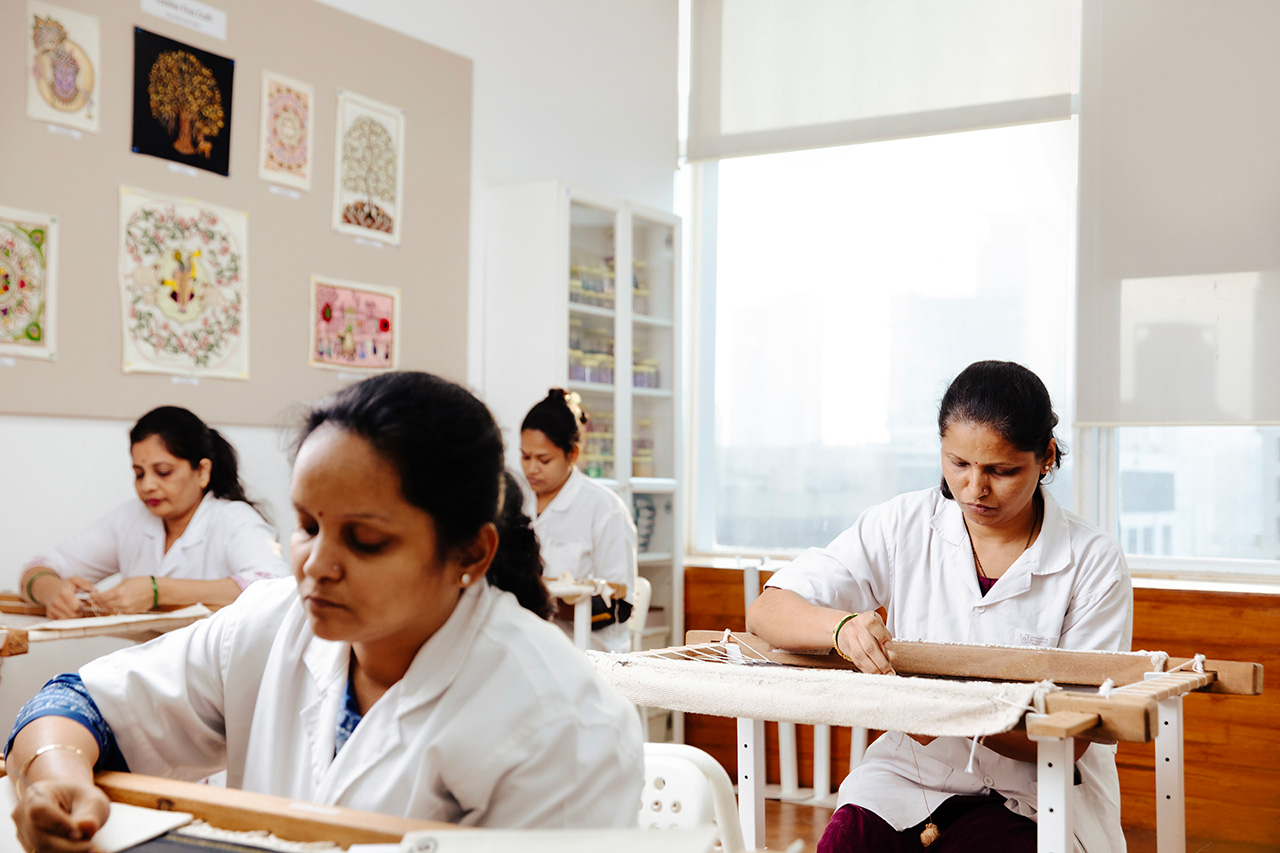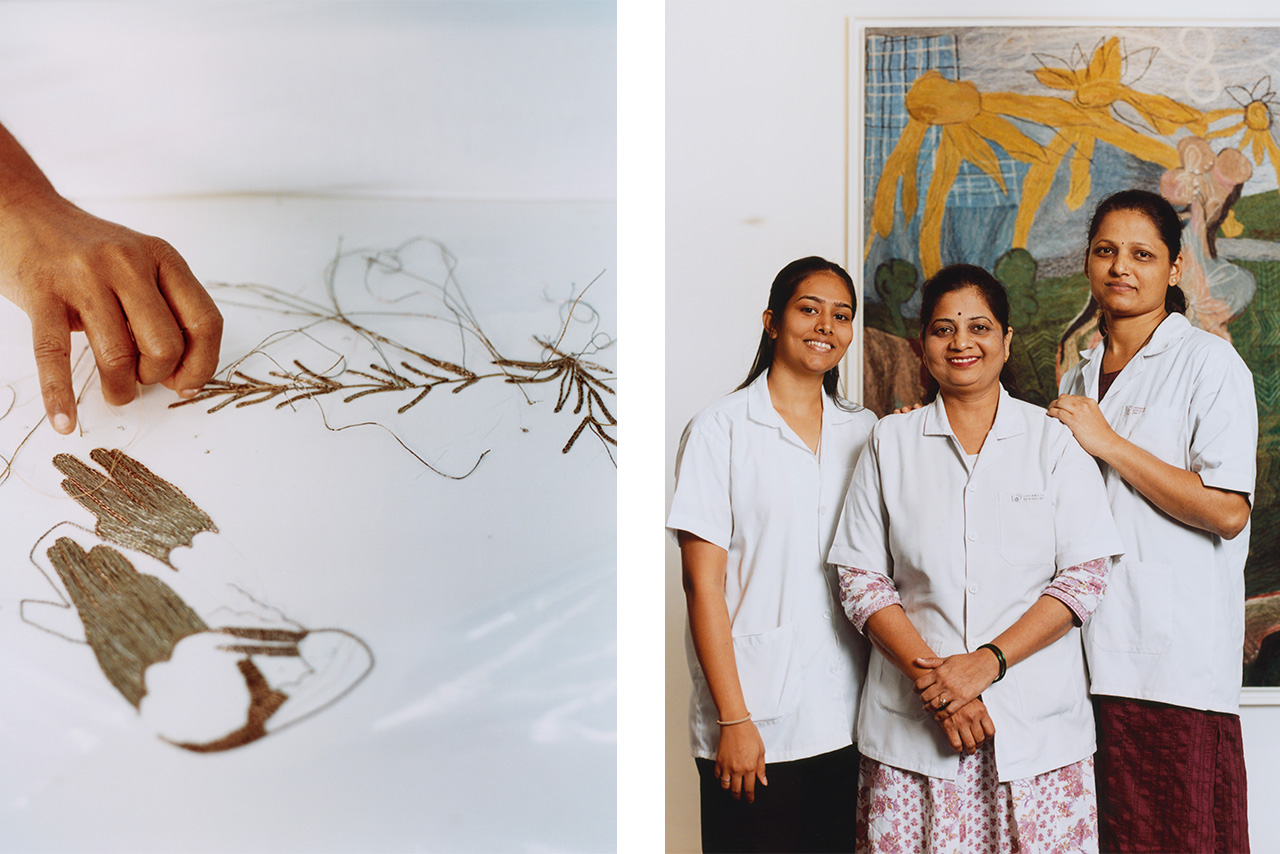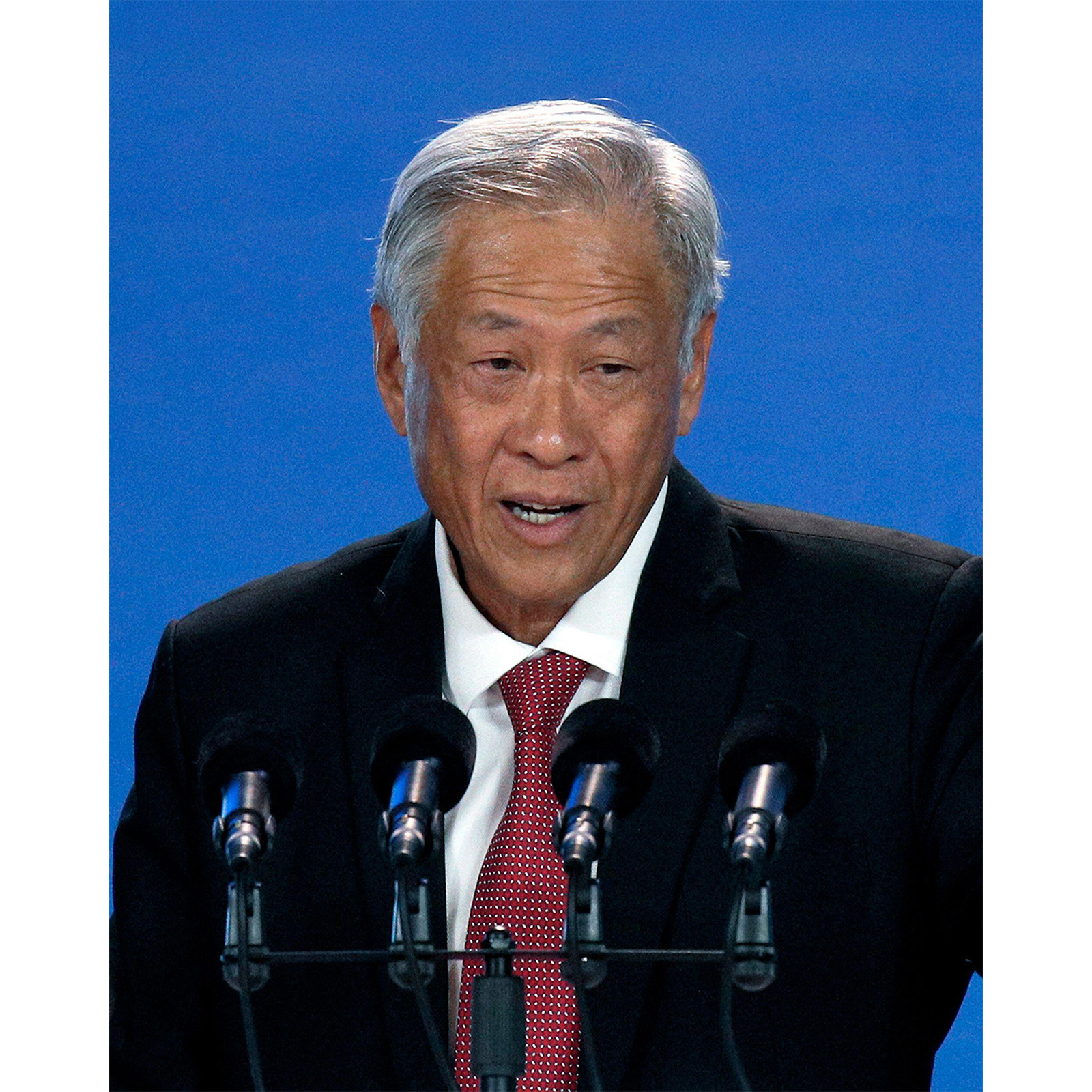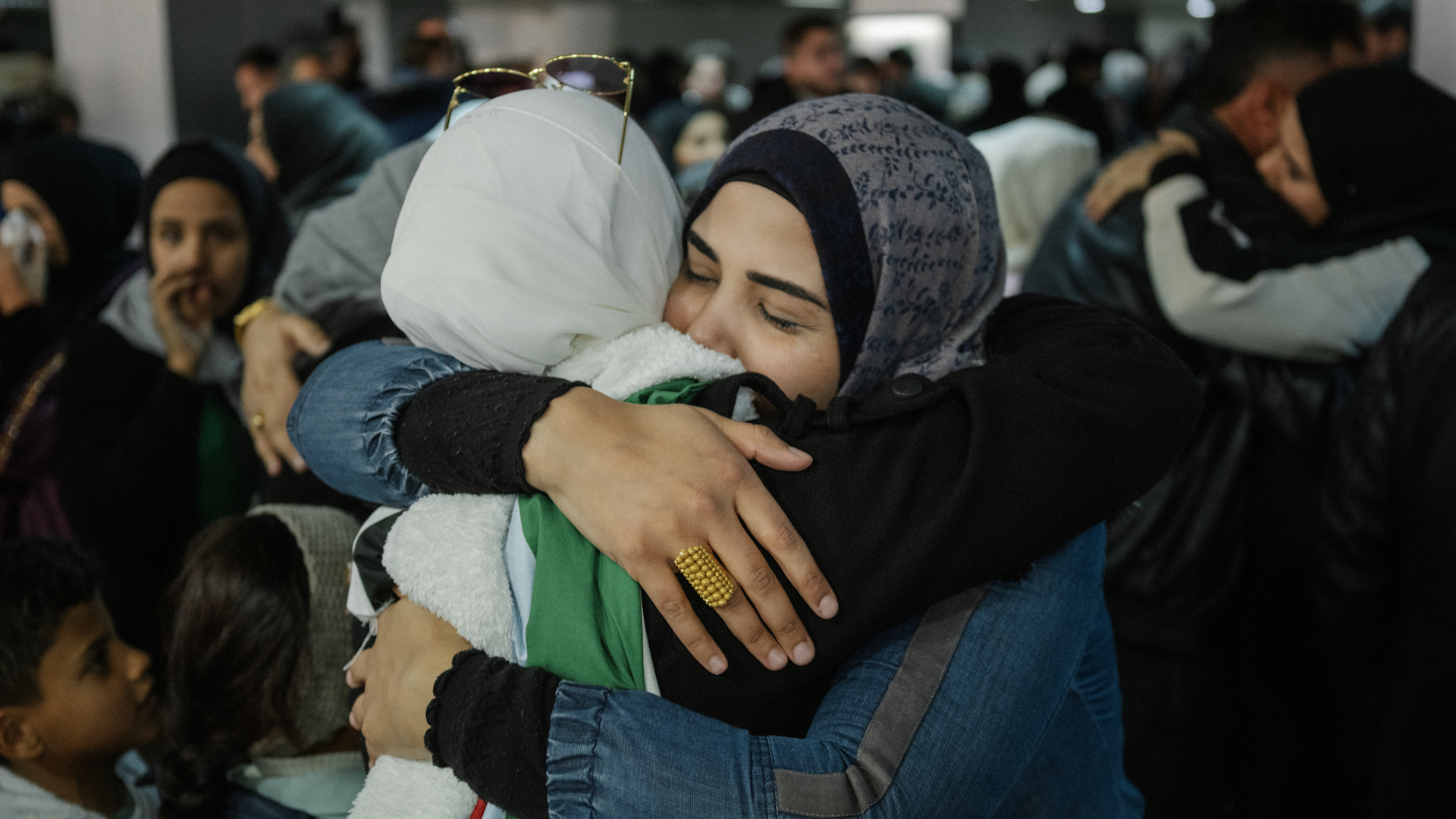Canada-California travel, India’s craft school, the UK non-for-profit teaching soft skills and Singapore’s defence minister.
|
Friday 25/4/25
|

|
|
London
Paris
Zürich
Milan
Bangkok
Tokyo
Toronto
|
|
|
|

Hello from Jakarta, where the fourth edition of The Chiefs conference is well under way and a sizeable battalion of Monocle staff has been deployed to host 150 delegates and partners. It’s a fitting setting to write this very warm welcome to a refreshed and renewed monocle.com. From today, Monocle’s editorial metabolism cranks up a gear with an expanded editorial team in Tokyo, more columns and comments, more detailed travel guides and a digital experience that is designed to be a calm and considered complement to your diet of rolling news outlets and trade sites. There is much to come on monocle.com over the coming weeks as we add fresh elements and, as ever, we’re keen to have your input. Please drop us a note at newsletter@monocle.com.
Thank you for your support.
Tyler Brûlé
Chairman and editorial director
Here’s what coming up in today’s Monocle Minute:
THE OPINION: Technology is a tool not the boss
TRAVEL: Snowbirds are changing course
IN PRINT: The women weaving India’s craft legacy
SOCIETY: Teaching youngsters essential life skills
Q&A: Ng Eng Hen, minister of defence, Singapore
|
|
Technology is a tool for human connection – not a replacement for it
By Josh Fehnert
|

|
If you believed everything you read online, you might think that AI has already aced the interview and become the boss. Are robots coming for your job? Perhaps in time. But adapting to technology rarely runs as planned and the immediate future is much more likely to be a balancing act.
A recent BBC article offers a truer reflection of how technology – bane or boon – is affecting life today. The vignette quotes an advertising executive who is concerned not that AI will replace employees wholesale but that it has become rather too good at forging credible CVs. His issue? Ostensibly qualified, poised and eloquent candidates are arriving at work without the foggiest idea about doing the job.

In good hands: Monocle’s May issue is out today
People promised an easy life served by technology are becoming unmoored from the challenges of navigating it away from a backlit screen. Whatever the future holds, surely some softer skills (knowing how to read a room, manage conflict and deal with people) will remain important regardless of the relentless march of technology.
At Monocle, we’ve always advocated for balance – big-picture ideas and innovations, yes, but also some pragmatism and common sense in how they’re implemented. As Tyler mentions above, we’ve now invested in a smart new website, which quietly launched yesterday and of which we’re extremely proud. Today also marks the newsstand and digital launch of our May issue, which includes our annual Design Awards.
There’s a caveat, of course. For our brand – like the world more broadly – technology for its own sake doesn’t make sense without some humanity. Our magazine is sold in 80 countries; we have bureaux around the world; we host events and have shops and cafés. We also employ experienced journalists doing on-the-ground reporting (rather than sitting in their bedrooms on ChatGPT). They go out and meet the people who are making important decisions and coming up with canny ideas. And here’s a promise: all of our stories remain written and edited for humans (not likes, clicks, impressions or conversions) and by humans.
Technology is a tool, remember, not the boss, and we need to consider a better balance between dreaming about tech’s promise and what it does for us today. Speaking of which, isn’t it time you logged on for a look?
Josh Fehnert is Monocle’s editor. Subscribe to Monocle today for full access to our new website and to receive the magazine.
|
|
travel: USA & Canada
Travel from Canada to California slumps in the wake of Trump’s tariffs
The city of Palm Springs is in a patriotic mood (writes Tomos Lewis). But the recent flurry of flag-waving has not, on this occasion, involved the US stars and stripes; it is Canada’s red-and-white maple leaf that is currently a-flutter along the desert city’s boulevards.
Palm Springs is a key annual destination for one set of Canadian travellers – ‘snowbirds’. Every year, these travellers, who migrate to warmer climes for the winter, contribute about $20.5bn (€18bn) to the US economy. But travel from north to south has slumped since February when Donald Trump set in motion his manoeuvres against Canada’s economy. Flight bookings to the US from Canada for spring and summer have dropped by 70 per cent compared to last year, according to an analysis by OAG Aviation Worldwide.

Going south? The travel industry takes a hit in California
While business travel appears to have rebounded since its February dip, the reduction in border crossings has become an election issue in Canada. Prime minister Mark Carney has launched a national museum and a rail pass to encourage Canadians to holiday at home this summer. But California’s governor, Gavin Newsom, as well as cities such as Palm Springs, are campaigning to coax Canadians back to the state, noting the distance – both geographical and political – between them and Washington. Like any good twitcher, the Golden State will have to be patient as the snowbirds’ flight patterns shift course – at least for the moment.
|
|
in print: mumbai
The Indian craft school training women weavers in the art of embroidery
On the fifth floor of a corporate tower in Mumbai, sandwiched between IT and accounting firms, women sit around a table, diligently weaving golden thread through cotton. These are the students of the Chanakya School of Craft and they are practising zari, an embroidery style favoured by the rulers of the Mughal era. The school was established in 2016 by Indian textile and embroidery house Chanakya International. The atelier regularly collaborates with fashion houses such as Dior. The French brand’s longtime creative director, Maria Grazia Chiuri, often commissions the Chanakya school to create tapestries for its runway shows and hand-embroidered gowns for couture collections.

Top of the class: Students in session

Following the threads: Artisans at work and women of Chanakya
Since the inception of the programme, 1,300 women have passed through the school and gone on to work at the atelier or start businesses of their own. “We try to absorb as many graduates as possible,” says Karishma Swali, creative director of Chanakya International. Swali funds the school using revenue from the design-and-manufacturing arm of the Chanakya International business. This is a worthwhile investment as the training courses also double as talent incubators. “[These women] become custodians of these crafts,” adds Swali. “Once they see their works on a global stage, they really are artists.”
|
|
Society: south africa & UK
A not-for-profit organisation that boosts young adults’ soft skills has landed in the UK
Older generations have long been fond of criticising youngsters for lacking the skills to be a proper adult (writes Christopher Cermak). But despite the ubiquity of mobile phones, it appears that using one to have a conversation is too tricky for some of those below a certain age. That’s one of the reasons why a group called Higher Health, which has been running soft skills classes in South Africa for the past six years, is expanding its efforts – starting in the UK. The company runs lessons that range from maintaining eye contact to making a phone call – daily essentials too often neglected by education systems. “These are critical skills for living that make you who you are,” says Ramneek Ahluwalia, chief executive of Higher Health. Ahluwalia says that job recruiters have complained about young people lacking these basics for years. So the challenge isn’t new. “All Higher Health has done is cracked one important element: teaching soft skills through live training scenarios,” says Ahluwalia. Good call.
|
|
Q&A: ng eng hen
Singapore’s defence minister on US-Asia relations and Chinese aggression
Ng has served as Singapore’s minister for defence since 2011. Before entering politics, he was an oncologist at the city-state’s Mount Elizabeth Hospital. Monocle sat down with Ng at this year’s Munich Security Conference.

Is Singapore worried about the reliability of the US?
We continue to hold the view that a US presence in Asia is needed for stability. US secretary of defense Pete Hegseth said that one of the reasons he wants European militaries to do more is so that the US military can concentrate on Asia. I don’t see American reliability as a challenge for Asia. It is Europe that will be affected.
Do Trump’s comments regarding Greenland encourage Chinese aggression in the Indo-Pacific?
You could say that the same principles that Trump has applied to Greenland also apply to Taiwan because Taiwan might be seen as indispensable to China’s security. There’s one big difference and that’s the One China policy. Various communiqués have recognised the People’s Republic of China as the sole legitimate representative of China at the UN.
What are your greatest security concerns?
As long as we have public support to continue to build our military for deterrence purposes, we are no threat to anyone. And recent polls show that support for defence among Singaporeans is still very high, above 90 per cent.
|
|
Monocle FILMS: BUSINESS
Syria, from the ground up
Just months after the fall of Bashar al-Assad, Syria is rebuilding – both its institutions and its battered cities. For Monocle’s April issue, our Istanbul correspondent Hannah Lucinda Smith joins a flight from Istanbul packed with returnees and Turkish investors to discover how the nation’s future is shaping up. Photography by Emin Ozmen.

|
|
Newsletter:
Join us
Welcome to our world
Has this been forwarded to you
by a friend? Sign up to The
Monocle Minute and Monocle
Weekend Editions to receive your
own bulletin of weekday news and
weekend treats.
| | |